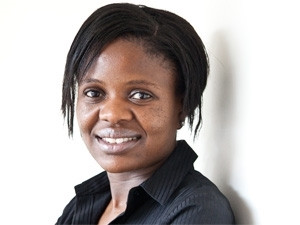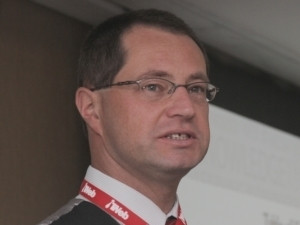
The duopolistic mobile sector is in for a shakeup, as merger and acquisition activity looms on the horizon, with rumours in the marketplace naming several local - and international - entities as potential buyers.
Telkom is in talks with an unnamed third-party around de-risking its mobile arm, Vodacom is offering to buy out Neotel, and AT&T reportedly wants to buy Vodafone, which could see the UK-based operator's African assets - including Vodacom - being put on the market.
IDC analyst Spiwe Chireka says, if Vodacom's bid for Neotel is green-lighted, this would pave the way for more deals. Vodacom's bid is at due diligence stage, and getting all the required approvals could take as long as a year.
However, if the bid goes off without a hitch, it would open the way for activity such as a partnership between Cell C and Telkom Mobile, or a foreign entrant into the local market, says Chireka.
Telkom CEO Sipho Maseko has already said if Vodacom is allowed to buy Neotel, Telkom may do something similar in the future. He hopes no issues would be raised if Telkom made a similar move.
Consolidation is expected, and makes sense, says Chireka. She notes rolling out a network is expensive, and smaller operators could merge to get scale and become more competitive, while bigger players may want to buy out assets.
Drivers for consolidation include a mature market, and growing competition as companies move across product areas, such as Neotel's long-term evolution play, and Vodacom's plans to roll out fibre, says Africa Analysis analyst Dobek Pater.
Chireka says the market is too fragmented.
Various options
Telkom is mulling what to do with its mobile arm as it wants to trim its need for capital investment. Maseko has been opaque around the nature of the talks, as well as the third party.
This, says Maseko, is because he wants the deal "in the bag" before talking about it, as Telkom has previously promised a lot and under-delivered. However, the ongoing discussions have raised speculation that Telkom's negotiating partner may be Cell C.

Chireka says there could be a tie-up between Telkom Mobile and Cell C, as neither have the capacity individually to take on heavyweights MTN and Vodacom. She says a pooling of resources would enable both to compete better.
MTN and Vodacom may make noises about a partnership between SA's two smallest players, but Cell C would battle on its own to make a dent in market share, because of funding inhibitions, says Chireka.
However, Ovum analyst Richard Hurst notes Telkom is unlikely to spin off its mobile arm. Telkom needs mobile to do "funky things" like fixed and mobile convergence, although it must resolve its cash burn. "Telkom has made its bed and must lie in it."
Pooling infrastructure such as spectrum and access to Telkom's 147 000km of fibre would eliminate the weaknesses each company faces, says Chireka. She does not anticipate competition issues, because of SA's duopolistic marketplace.
Another option would be if Telkom outsourced its mobile arm to a company like Huawei to run it, adds Chireka. It could also look at selling its towers or other parts of the network, which would turn capital investment into operational expense.
Hurst does see room for an outsourcing deal, such as getting MTN to run the network for Telkom. He says Telkom could sell its infrastructure, and lease it back, or have another company manage it.
Eyes on SA
Other possibilities include foreign companies such as Bharti Airtel entering SA through an acquisition, says Chireka. She adds says there could be a tie-up between Cell C and Orange, which has said it wants to run as a virtual operator in South Africa.

While Telkom Mobile would be too small an acquisition target, with 1.6 million subscribers, this does not discount a company such as Orange bidding for another cellular company, says Chireka.
Pater says Orange, which is active in Africa, has been eyeing SA for some time. He says it is a key country for operators that want a large chunk of Africa's market.
Orange already has a presence in Kenya and the Democratic Republic of Congo, while Orange Business Services has a presence in 40 countries on the continent.
Pater says Orange's presence locally is limited to an online store, and its partnership to use Nashua Mobile stores. He adds that, should AT&T's bid for Vodafone go through, the US-based company has indicated it will get rid of its African assets.
Orange has voiced its keenness to acquire these operations, says Pater. He notes there is minimal overlap between the company's operations.
While Orange is keen to boost its South African presence, MD of Orange Horizons S'ebastien Crozier told Business Times there have been no discussions with Vodacom.
Crozier previously made it clear Orange does not want to be another brand operator, but rather a fully-fledged virtual mobile operator, with differentiated offerings and a competitive-edge. "We want to be a competitor and be able to do more. We want to create a global system and be able to offer the same services as mobile operators."